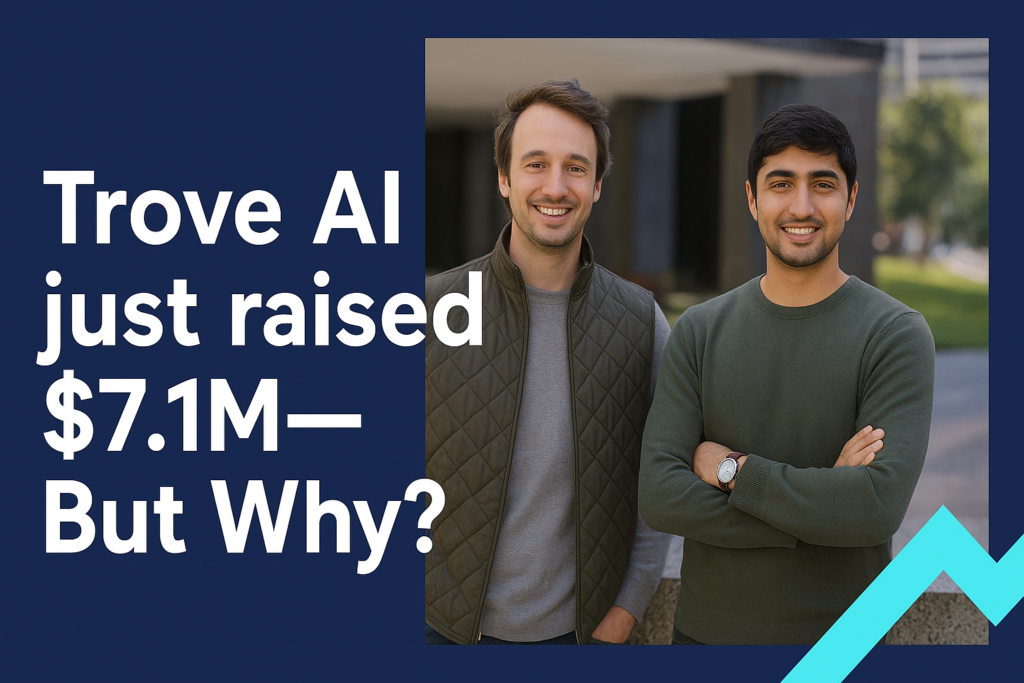The private equity industry has long relied on manual, time-intensive processes—thousands of documents, scattered data, and relentless deadlines. Trove AI, a San Francisco-based startup, recently raised $7.1 million in seed funding, bringing its total capital to nearly $9 million. The company builds specialized AI agents designed specifically for private equity firms, signaling a significant shift in how financial professionals approach deal work and portfolio management.
What Does Trove AI Actually Do for Private Equity Firms?
Trove AI operates as an AI associate purpose-built for private equity work. The platform independently executes complex workstreams that typically consume hours of analyst time. It analyzes entire data rooms, extracts metrics from historical deals, and generates portfolio reports in a firm’s exact style through a simple chat interface. The system connects directly to internal applications and data sources, eliminating manual file uploads. Associates at firms using the platform turn to it over four times daily, with usage growing 86% in three months. Trove AI autonomously strings together dozens of actions, executing end-to-end workflows from deal screening to quarterly reporting in minutes rather than hours.
Who Led Trove AI’s $7.1M Funding Round?
Menlo Ventures led the funding round, with continued backing from Khosla Ventures, an early investor. Joff Redfern, Partner at Menlo Ventures, emphasized the company’s proven value with demanding private equity teams and its differentiated technical foundation. Founded in 2023, Trove AI assembled a team combining private equity expertise with AI capabilities. CEO Danny Goldman brings deal experience from Bain’s Private Equity group, while CTO Shivaal Roy previously served as a founding engineer at Glean, where he built the first version of Glean Assistant. The funding will accelerate product development, team expansion, and deployments at additional leading firms across the private equity landscape.
Why Private Equity Firms Are Turning to AI Agents
Private equity generates approximately 25% of the global economy, yet most workflows remain manual. Insights critical to investment decisions are often buried in unstructured content across disparate systems. Traditional approaches require analysts to manually comb through data rooms and financial statements—work that’s time-consuming and error-prone. Trove AI users report hours saved per data room review, allowing focus on judgment-driven work. Taylor Halsted, Head of Innovation at Shamrock Capital, noted that Trove AI has become mission-critical to their AI strategy. The platform enables analyses that weren’t feasible before, allowing firms to instantly query entire portfolios and identify patterns across thousands of documents.
How Trove AI Handles Financial Data Security
Trove AI employs a “cloud-prem” deployment model where the entire application resides within a customer’s private cloud infrastructure. This means sensitive financial data never leaves the firm’s controlled environment. The system maintains SOC 2 Type II compliance, meeting rigorous standards required by financial institutions. This bank-grade security approach has proven crucial for winning over security-conscious private equity firms. Unlike cloud-based tools requiring document uploads to external servers, Trove AI’s architecture ensures complete data sovereignty. The security infrastructure enables the platform to access and integrate firm-specific knowledge while maintaining the isolation and protection required by financial regulations and firm policies.
What Makes Trove AI Different from Other AI Tools?
Trove AI’s differentiation lies in its specialized architecture and domain focus. The platform automatically constructs a knowledge graph specifically designed for private equity operations, enabling high-quality data retrieval and analysis. Standard retrieval-augmented generation techniques don’t work effectively with financial firm data. Trove AI’s proprietary knowledge graph creates relationships between deals, companies, and metrics that reflect how private equity professionals think about investments. The platform’s agents act as specialized teammates with distinct capabilities, handling different workstreams from deal screening to portfolio monitoring. Users now run an average of over a dozen tasks per week, with usage climbing 86% over three months. Major firms like Shamrock Capital call it indispensable.
Conclusion
The Trove AI funding success reflects a broader trend: financial services are ready for purpose-built AI solutions that understand industry-specific workflows, integrate with existing systems, and meet stringent security requirements. For private equity firms, AI agents aren’t replacing professionals but partnering with them, handling manual work while freeing human talent for strategic judgment that drives successful investments.
Learn Business Model Of Trove AI

My Name is Adarsh and I am Empowering startups with high-quality content at Startups Union and bridging the gap between brand stories.
